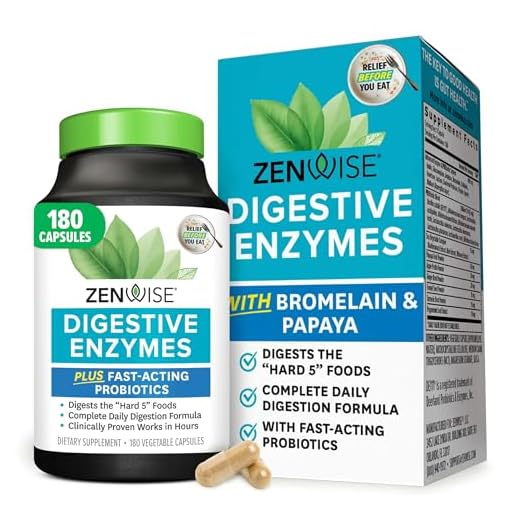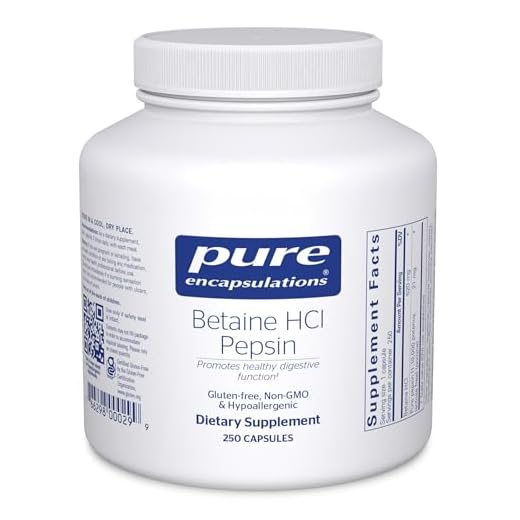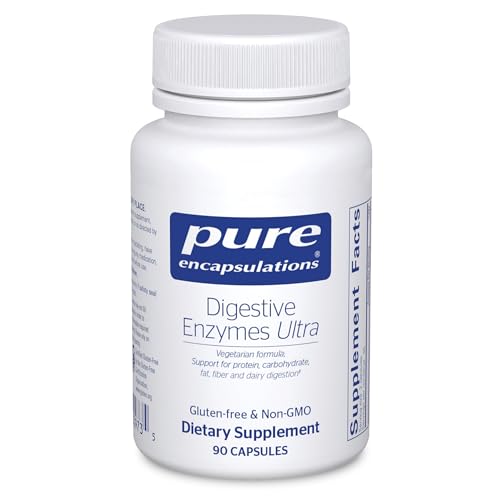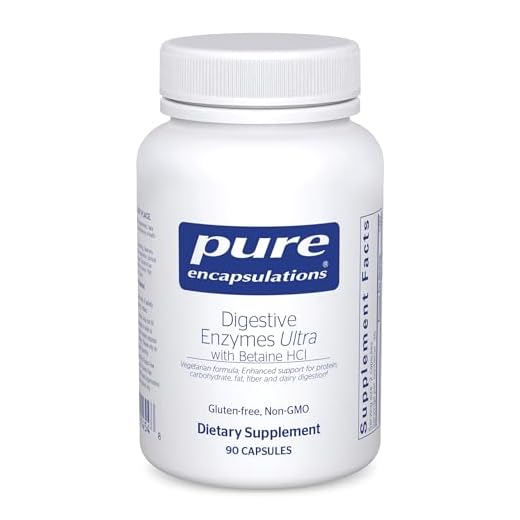



Within the ingenious mechanism that constitutes the human digestive system, numerous intricate processes take place on a daily basis, ensuring the efficient breakdown and absorption of vital nutrients. A particular focus is placed on the digestion of proteins, which are undoubtedly one of the fundamental building blocks of life.
As nature’s own architects of strength and structure, proteins play a pivotal role in the formation and maintenance of various tissues and organs throughout the body. But how does the body successfully dismantle these intricate molecular structures into more manageable components that can be utilized by the cells?
One might be astounded to discover the myriad of events that unfolds within our gastrointestinal tract upon the consumption of protein-rich foods. This remarkable journey commences as soon as food enters the mouth and embarks on its intricate voyage through the convoluted pathway of the digestive system, where specialized enzymes and digestive juices wield their transformative powers.
Breaking Down Proteins: The Process of Protein Digestion
Within our remarkable human system, proteins undergo a complex and intricate process of breakdown and absorption. This highly efficient process ensures that our body receives the necessary amino acids for various physiological functions, such as tissue repair and hormone production. Let’s explore the fascinating journey of protein digestion in more detail.
The Journey Begins: Mouth and Stomach
Our digestive journey starts in the mouth, where proteins receive their initial breakdown through the action of salivary enzymes. Chewing and mixing with saliva form a bolus, allowing the enzymes to begin the process of chemical digestion. This partially digested food then enters the stomach, where it encounters the acidic environment and gastric juices. Here, the enzyme pepsinogen is activated to pepsin, initiating the further breakdown of proteins into smaller polypeptides.
The Small Intestine: The Mainstage of Digestion
The small intestine is the central hub for protein digestion and absorption. As the partially digested proteins and polypeptides travel through the duodenum, pancreatic enzymes – such as trypsin, chymotrypsin, and carboxypeptidase – further break down these compounds into smaller peptides. These peptides are then hydrolyzed by enzymes called peptidases, produced by the intestinal lining cells, ultimately producing individual amino acids.
- Travelling through the jejunum and ileum sections of the small intestine, these amino acids continue to be absorbed through the intestinal lining into the bloodstream.
- The circulatory system transports these amino acids to various tissues throughout the body, where they play essential roles in building, repairing, and maintaining our body’s structures.
- Any undigested proteins or peptides that reach the large intestine are further broken down by intestinal bacteria, releasing additional nutrients and byproducts.
In summary, the intricate process of protein digestion involves the sequential action of multiple enzymes in different sections of our digestive system. From the mouth to the small intestine, proteins are broken down into individual amino acids, facilitating nutrient absorption and supporting the body’s various physiological functions.
Protein Breakdown Initiates in the Stomach
In the intricate process of breaking down proteins, digestion commences in the gastric environment of the stomach. This initial stage sets the foundation for their subsequent absorption and utilization throughout the body. The stomach plays a vital role in the breakdown of proteins, facilitated by the actions of gastric secretions and enzymes.
Gastric Secretions:
The stomach produces gastric secretions, primarily hydrochloric acid and pepsinogen, which work synergistically to create an optimal pH environment for protein digestion. Hydrochloric acid helps to denature the proteins, unfolding their complex structures and exposing their peptide bonds for further breakdown. Pepsinogen, secreted by specialized cells in the stomach lining, is later activated into pepsin by the acidic environment, providing the key enzyme needed for protein hydrolysis.
Proteolytic Enzymes:
Pepsin, the main proteolytic enzyme in the stomach, cleaves the peptide bonds between amino acids, breaking down proteins into smaller peptide fragments. Its specificity lies in targeting certain amino acid sequences and hydrolyzing them, further breaking down the proteins into polypeptides. These smaller peptides can be more efficiently digested in the subsequent stages of the digestive process.
Control Mechanisms:
The secretion of gastric secretions and activation of pepsinogen are tightly regulated processes. Hormones, such as gastrin, stimulate the stomach to secrete hydrochloric acid and pepsinogen in response to the presence of proteins. Nervous system signals and feedback mechanisms also play a role in coordinating and adjusting the release of these digestive components to ensure optimal protein breakdown.
Understanding the intricate process of protein breakdown in the stomach provides valuable insight into the initial steps of digestion, highlighting the importance of gastric secretions and proteolytic enzymes in efficiently breaking down proteins for further utilization in the body.
Enzymes Take the Spotlight: Protease and Pepsin
In the intricate process of breaking down proteins within our bodies, enzymes play a vital role. Two key enzymes involved in this process are protease and pepsin. These enzymes are responsible for facilitating the digestion of proteins, ensuring the proper absorption of essential amino acids.
Protease, also known as a proteinase or peptidase, is an enzyme that breaks down proteins into smaller polypeptides and amino acids. It acts as a catalyst, accelerating the chemical reactions necessary for protein digestion. Protease is present in various parts of our body, such as the stomach, pancreas, and small intestine, and it plays a crucial role in ensuring that proteins are efficiently broken down and absorbed.
Pepsin, a type of protease, specifically functions in the stomach and aids in the digestion of proteins. It is produced and secreted by the gastric glands and works optimally in the acidic environment of the stomach. Pepsin cleaves large protein molecules into smaller fragments, known as peptides, which can be further digested into amino acids by other enzymes.
- Protease and pepsin work synergistically to break down proteins into smaller components.
- Protease acts in various parts of the digestive system, while pepsin specifically functions in the stomach.
- Both enzymes are crucial for the efficient digestion and absorption of proteins.
- Protease and pepsin play a significant role in maintaining protein balance within our bodies.
- Their activity is regulated and controlled to ensure optimum digestion and absorption of proteins.
In conclusion, understanding the role of enzymes such as protease and pepsin in protein digestion is essential for comprehending how our bodies process and utilize this vital macronutrient. By breaking down proteins into smaller components, these enzymes enable the absorption and utilization of amino acids, which are crucial for various physiological processes within the body.
The Role of Enzymes in the Breakdown of Proteins within the Human Organism
When it comes to the intricate process of breaking down proteins in our bodies, enzymes play a vital role. These catalysts, working within the confines of our physiological system, facilitate the digestion of a diverse range of protein molecules, ensuring their transformation into essential amino acids for various bodily functions. Understanding the pivotal function of enzymes in protein digestion offers valuable insights into the mechanisms that allow us to obtain the necessary nutrients from the food we consume.
The Digestive Enzymes
Within our digestive system, a series of specialized enzymes collaborates harmoniously to initiate and complete the breakdown of proteins. One key player is pepsin, an enzyme secreted by the gastric glands present in the stomach lining. Pepsin, a protease, actively breaks down large protein molecules into smaller polypeptides by cleaving the peptide bonds that hold them together.
In the next phase of protein digestion, these partially digested polypeptides travel into the small intestine, where they encounter pancreatic enzymes. These enzymes, including trypsin, chymotrypsin, and elastase, are released by the pancreas and act synergistically to break down the remaining polypeptides into shorter peptide chains. Each enzyme exhibits specificity towards certain bond types, ensuring thorough digestion of a wide range of protein structures.
Converting Proteins to Amino Acids
As the peptide chains become progressively shorter, the final phase of protein digestion involves the action of peptidases. These enzymes further hydrolyze the peptides, resulting in the release of individual amino acids that can be readily absorbed by the intestinal lining and subsequently utilized by the body. Peptidases, including aminopeptidases and dipeptidases, play a vital role in completing the transformation of proteins into their basic building blocks, allowing for their optimal utilization in various physiological processes.
In summary, enzymes are indispensable agents in the complex process of protein digestion within the human body. Through the coordinated action of different enzymes, proteins are broken down into smaller and more manageable components, namely amino acids. This pathway enables our bodies to obtain essential building blocks necessary for growth, repair, and maintenance of various tissues and organs.
FAQ,
How are proteins broken down in our body?
Proteins are broken down in our body through a process called digestion. Once we consume protein-rich foods, such as meat, fish, or beans, they travel to our stomach where they encounter digestive enzymes. These enzymes, known as proteases, break down the proteins into smaller components called peptides.
What happens to proteins after they are broken down in the stomach?
After proteins are broken down into peptides in the stomach, they move into the small intestine. Here, additional enzymes continue the digestion process, breaking down the peptides into even smaller molecules called amino acids. These amino acids are then absorbed into the bloodstream, allowing our body to utilize them for various functions.
How long does it take for proteins to be completely digested in our body?
The time it takes for proteins to be completely digested in our body may vary depending on several factors, including the type and amount of protein consumed, as well as individual factors such as metabolism. On average, protein digestion can take anywhere from a few hours to several hours.
What happens if our body cannot properly digest proteins?
If our body cannot properly digest proteins, it may result in various digestive issues. For example, insufficient production of digestive enzymes can lead to incomplete protein breakdown and malabsorption. This can cause symptoms such as bloating, gas, stomach pain, and nutrient deficiencies. In severe cases, it may lead to conditions like celiac disease or lactose intolerance.








